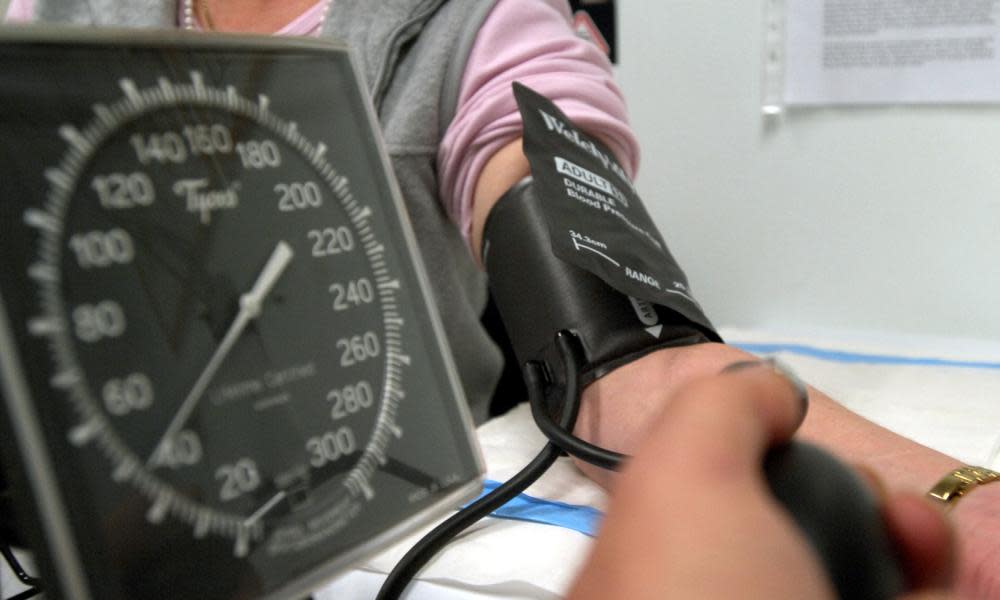Over-the-counter HRT is a promising start but deeper change is needed

Analysis: Women’s health review is chance to end culture in which serious concerns are dismissed as ‘women’s problems’
The news that the first HRT product will be made available over the counter comes as the government is gearing up for the launch of its Women’s Health Strategy this spring.
The review of women’s health has been a long time coming: it follows a string of women’s healthcare scandals over several decades, including vaginal mesh and epilepsy medication that harmed unborn babies, and the stark finding in Sir Michael Marmot’s 2020 review that women’s life expectancy in the poorest parts of the UK has declined for the first time in 100 years. Some wondered if the latest exercise would be a token gesture.
Related: Plans to make vaginal HRT tablets available in the UK over the counter
The decision is a promising indication that it will be more than that. Making vaginal oestrogen tablets – a product called Gina-10 – available over the counter is fairly uncontroversial and a sensible place to start.
The drug is used to treat vaginal dryness, a symptom estimated to affect up to 80% of menopausal women and which can cause irritation and pain during sex. The drug can also lower the risk of urinary tract infections, which affect some women more frequently during the menopause and often need treatment with antibiotics. And because it only has a tiny dose of locally acting hormones, it carries none of the risks of global-acting HRT, such as breast cancer and blood clots, making it safe to take indefinitely.
“Nobody talks about vaginal dryness,” said Paula Briggs, a consultant in sexual and reproductive health at Liverpool Women’s Hospital, who has welcomed the prospect of the HRT product being dispensed over the counter. “Women accept it as part of ageing and it doesn’t have to be. This is an area where we could massively improve quality of life.”
A public consultation, ahead of the launch of a Women’s Health Strategy, found that for women aged 40-59 the menopause was the most common health priority. There are suggestions that the government is poised to take action in other areas, with an announcement this week that it plans to ban virginity testing and hymen repair surgery, which is offered at some private clinics.
There are other relatively straightforward steps that could be taken, such as making the provision of abortion pills at home – an emergency measure brought in during the pandemic – a permanent arrangement. The amended rules are set to expire on 30 March.
However, there are also deeper changes in health provision that will be required to more fully address the wide range of health inequalities faced by women.
The 2020 Cumberlege inquiry identified a culture among medical professionals in which serious medical concerns have been dismissed as “women’s problems” as underpinning some of the failings in women’s health provision.
Others have highlighted systemic issues that mean that chances to improve women’s health are routinely missed. For instance, women who suffer from pre-eclampsia during pregnancy are at a far higher risk of heart disease later in life, but are not always offered interventions aimed at improving long-term cardiovascular health.
There is also fractured commissioning, that means, for instance, that a woman who needs a hormonal coil to treat menopause symptoms cannot be treated at a sexual health clinic. Some areas of women’s health, such as treatment for endometriosis, have been acutely hit by the backlogs created during the pandemic. And there are significant disparities in experiences and outcomes between women, depending on where they live, ethnicity, education and wealth.
Tackling these issues is a far more ambitious task, but, experts hope, is the motivation for having an over-arching strategy rather than making a handful of one-off policy changes. Dr Edward Morris, president of the Royal College of Obstetricians and Gynaecologists, said: “This isn’t about getting it right for those who know where it is, it’s about getting it right for everybody.”

 Yahoo News
Yahoo News 
